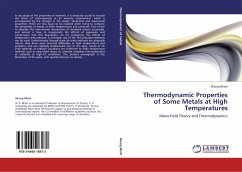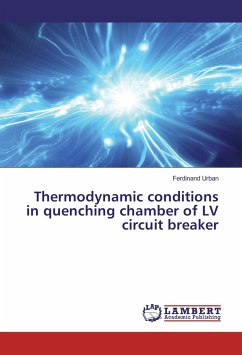The thermodynamic properties of heavy finite nuclei in which the numbers of neutrons (N) is larger compared to the number of protons (Z) has been studied using the fundamental principles and equations of statistical mechanics. It has been assumed that the core of the nucleus is composed of neutron-proton (np) pairs and the unpaired neutrons lies in the surface region of the nucleus. Thus the number of np pairs is equal to Z and the number of unpaired neutrons is (N-Z)The neutron and proton in the np-pair interacts harmonically, and the unpaired neutrons cause perturbation of the np-pair. A perturbing potential is assumed to be of composed of an attractive and repulsive term. For such an assembly, the partition function (Q) is calculated and Q can be related to the perturbation energy. The total energy of the nuclei is determined by summing up the perturbation energy and the pairing energy. The specific heat, entropy and transition temperature is calculated.This book is suitable for theorists who intend to work on thermodynamic properties and the pairing correlations in nuclear physics
Hinweis: Dieser Artikel kann nur an eine deutsche Lieferadresse ausgeliefert werden.
Hinweis: Dieser Artikel kann nur an eine deutsche Lieferadresse ausgeliefert werden.








